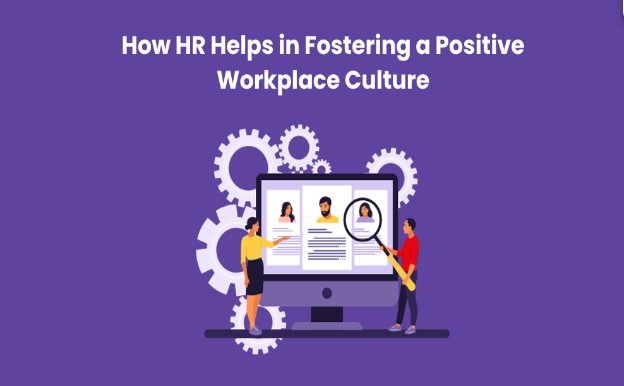Companies all over the world are grappling with the problem of cultivating a workplace culture in which employees flourish, production skyrockets, and creativity knows no bounds. What are the root causes? The absence of a solid HR foundation, especially a lack of awareness about the transforming impact of HR Courses and Human Resource Development, is frequently to blame. Businesses that lack a guiding hand to establish rules, instil a feeling of belonging, and give chances for continual growth might find themselves adrift in a sea of disengagement and unhappiness.
This blog will show you how, through strategic initiatives and well-crafted programs, HR managers can shape workplaces where employees are more than just assets but valued contributors to the company’s success narrative.
Table of Contents
Role of Human Resource Development in Skill Enhancement
HRD is an area of study that extends beyond conventional training approaches. It includes a comprehensive strategy for raising worker competencies, knowledge, and skills. The main goals of HRD projects are to pinpoint skill gaps, create customised training curricula, and assess the results. Organisations may guarantee that their staff is knowledgeable, flexible, and prepared to tackle the demands of a dynamic business environment by allocating resources towards human resource development. When given ongoing opportunities for skill development, employees not only become more adept at their jobs but also feel appreciated and driven, which fosters a healthy work environment.
Recruitment and Onboarding
Effective human resource professionals recognise that recruitment is more than just filling open positions; it is also about finding the appropriate fit. HR ensures that new personnel correspond with the company’s values, culture, and long-term goals through comprehensive applicant profiling, creative sourcing approaches, and rigorous assessment processes. Strategic recruiting establishes a favourable tone from the start, as employees are more likely to prosper when they share the company’s values.
Employee Engagement and Satisfaction
HR professionals who are proficient in HR courses understand that a supportive work environment sparks employee engagement. This entails not only resolving problems at work but also actively fostering an environment where staff members feel respected, heard, and valued. This encouraging environment must have accessible management, open lines of communication, and inclusive policies. Employees are more likely to actively participate in their responsibilities and positively impact the culture of the company when they feel that their concerns are valued.
It is important to always acknowledge and value the contributions made by employees. HR specialists create innovative recognition programs that recognise accomplishments, significant anniversaries, and extraordinary efforts, drawing on expertise from HR courses. They might be as simple as thank-you notes or as complex as award ceremonies. Employee happiness skyrockets when they feel valued and appreciated. These initiatives serve as strong motivators and raise morale while pushing staff to continually give their best work.
Conflict Resolution and Communication
Communication problems can lead to workplace confrontations. HR professionals who have taken HR courses on communication methods build clear, transparent communication channels. These channels, whether they be regular team meetings, suggestion boxes, or digital platforms, guarantee that information flows smoothly. Misunderstandings are avoided, and collaboration thrives when staff are well-informed.
Initiatives for Work-Life Balance and Wellness
These arrangements, which can include reduced workweeks, flexible work schedules, or remote work choices, enable employees to successfully manage their personal and professional lives. Flexible work schedules show that an organisation values its workers’ well-being and recognises the variety of needs among the workforces. A healthy workplace culture is built on the foundation of employee well-being, which is more than just a trend. HR specialists create all-encompassing wellness programs that address mental, emotional, and physical health after taking HR courses. Fitness competitions, mental health seminars, counselling services, and health examinations are a few examples of these programs.
Workplace Inclusion and Diversity
Diversity in the workplace includes a range of viewpoints, experiences, and ideas in addition to demographic differences. HR, using the knowledge gained from HR courses, encourages diversity through fair recruiting procedures, creating a welcoming environment, and appreciating individual uniqueness. When workers with different backgrounds work together, creativity blossoms and creative solutions appear. Accepting diversity is not only the right thing to do but also a calculated risk that opens new opportunities for the company and improves workplace culture.
Development of Leadership
At all organisational levels, leadership is a trait that can be developed. It is not limited to the boardroom. HR specialists recognise rising leaders and give them growth opportunities by using the knowledge they have gained from HR courses. Programmes for developing leadership skills include coaching, mentoring, and project exposure. When future leaders are developed, they motivate their groups, encourage cooperation, and stimulate creativity. Good leaders set the example for a pleasant work environment by upholding moral principles, being honest, and being dedicated to their profession.
Conclusion
By placing HR specialists at the forefront, organisations can create work cultures where people thrive, collaboration flourishes, and success knows no bounds. HR training and development, including specialized Business Skills Courses, have a significant impact on the company as a whole, not just the HR department since they foster an atmosphere where employees are motivated and fulfilled in their work. This investment in honing essential business skills equips employees with the tools they need to excel, ultimately propelling the entire organization towards unprecedented levels of achievement and prosperity.

